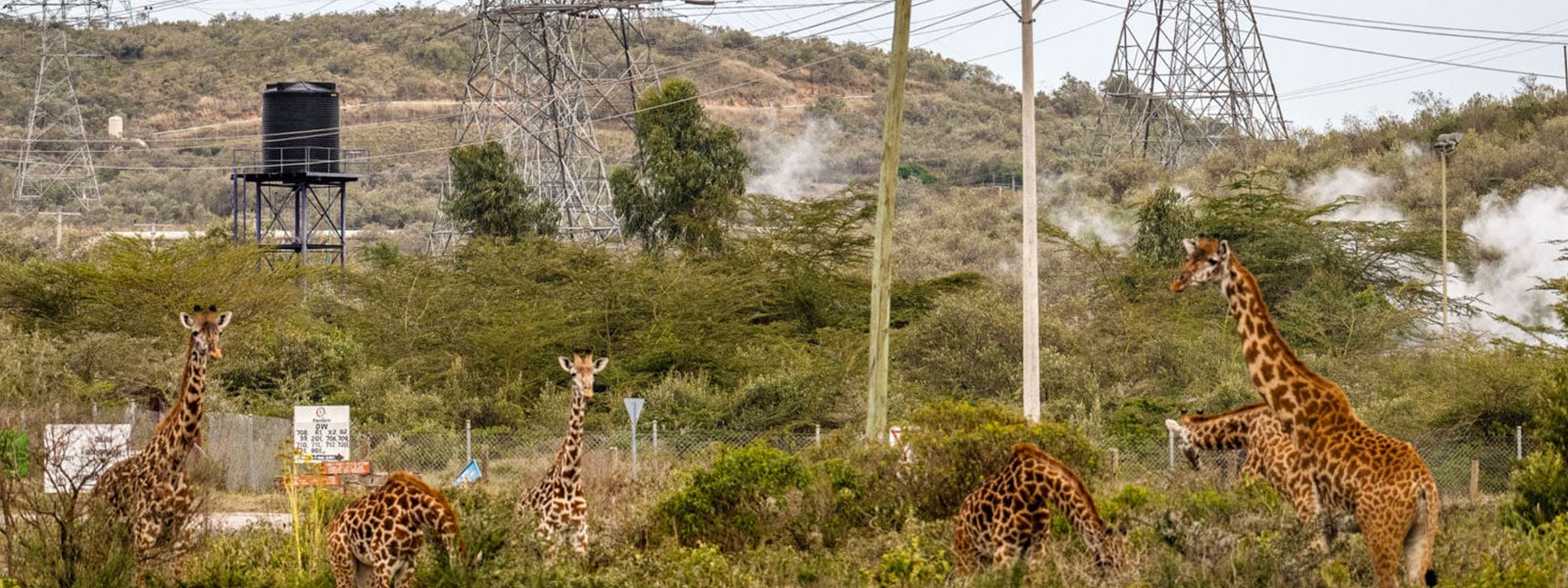
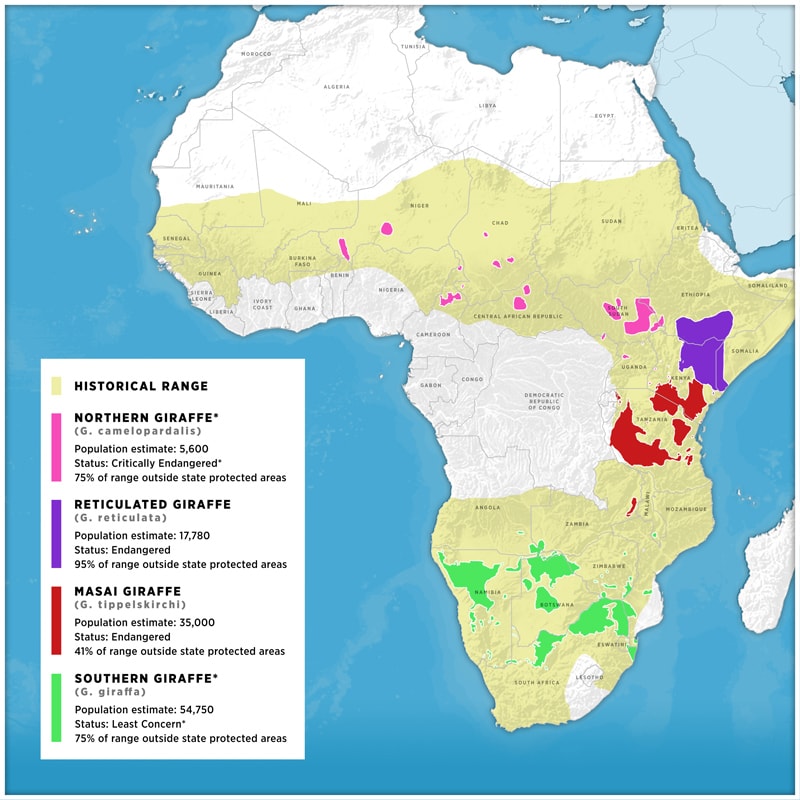
Map Design: Joseph Basnight; Map Data: O’Connor et al., 2019
Giraffe in Peril – The Silent Extinction
- In the last 30 years, giraffes in Africa have declined from approximately 155,000 to under 100,000, according to the latest IUCN Red List assessment.
- There are fewer giraffe in the wild today than the African elephant or the hippo. In the wild, African elephants outnumber giraffe 4 to 1.
- The devastating decline of the giraffe population has been so recent that very few people are even aware they are endangered. The giraffe are suffering a silent extinction.
- Because giraffe have not gotten the attention they deserve, three of the four species of giraffe are considered Endangered, with two types Critically Endangered.
- Less than half of all giraffe survive beyond their first year.
- Giraffe have already become extinct in seven African countries.
What is causing the problem?
- Loss of habitat caused by farming (raising of crops and livestock)
- Hunting and killing for giraffe meat
- Human-giraffe conflict due to giraffes eating farmers’ crops
- Armed conflict / civil unrest
- Timber harvesting
- Oil and gas exploration and mining operations
- Road building and urban development
- Population isolation
- Small groups of giraffes are often limited to isolated areas away from other giraffes, making it hard for them to reproduce.
- Accidents resulting from automobiles; entrapment in electrical lines or other wires/cables; electrocution
- Poaching for pelts and parts (used for trinkets, hunting trophies, etc.)
Giraffe Population and Conservation Status by Species
 Masai Giraffe
Masai Giraffe
Previously the most populous giraffe with an estimated 71,000 three decades ago; less than half that number remain in the wild today.
Masai giraffe can be found across Kenya and Tanzania, with an isolated population (Masai Thornicroft) living in northeastern Zambia.Scientific Name: Giraffa tippelskirchi
Population: Approximately 35,000 Masai giraffes remain
Population Trend: Masai are RAPIDLY DECREASING
IUCN RED LIST STATUS:
- Masai are ENDANGERED
- Masai Thornicroft are VULNERABLE
 Northern Giraffe
Northern Giraffe
Of the three subspecies of the Northern Giraffe known today, two are considered critically endangered and one is considered vulnerable.
Three subspecies exist across Eastern and Central Africa – the Kordofan giraffe, the Rothschild’s giraffe (now believed to be synonymous with Nubian giraffe), and the West African giraffe. The Northern giraffe are especially at risk because their range includes a number of war-ravaged countries, and their habitat is so fragmented.
Scientific Name: Giraffa camelopardalis
Subspecies:
Kordofan – G. c. antiquorum
Rothschild’s (Nubian) – G. c. camelopardalis
West African – G. c. peralta
Population: Approximately 5,600 Northern giraffe remain
Kordofan – 2,000
Rothschild’s (Nubian) – 3,000
West African – 600
- Kordofan – CRITICALLY ENDANGERED
- Nubian (Rothschild’s) – CRITICALLY ENDANGERED ‡
- West African – VULNERABLE†
 Reticulated Giraffe
Reticulated Giraffe
Restricted to just northern Kenya and some small populations in Ethiopia and Somalia, numbers of Reticulated giraffe have dropped significantly from ~36,000 three decades ago to ~15,780 today.
Fortunately, thanks to improved community and private land conservation, numbers across northern Kenya may have started to slightly stabilize.
Scientific Name: Giraffa reticulata
Population: Approximately 15,780 Reticulated giraffe remain
Population Trend: DECREASING
IUCN RED LIST STATUS: Reticulated giraffe are ENDANGERED
 Southern Giraffe
Southern Giraffe
A giraffe success story!
Thanks to substantial conservation efforts, the two subspecies of Southern giraffe that live across Southern Africa make up over 50% of Africa’s total giraffe population.
One of two subspecies of Southern giraffe, the Angolan giraffe, was locally extinct in their namesake country Angola until a recent reintroduction program. Angolan giraffe populations have tripled over the past three decades!
Scientific Name: Giraffa giraffa
Subspecies:
Angolan – G. g. angolensis
South African – G. g. giraffa
Population: Approximately 54,750 Southern giraffe exist today
Angolan ~17,750
South African ~37,000
Population Trend: INCREASING
IUCN RED LIST STATUS:
Angolan giraffe – LEAST CONCERN
South African giraffe – NOT ASSESSED ‡
*Not yet separately assessed by IUCN Red List, but based on current data, when assessed they fall into these categories
‡Nubian giraffe not yet assessed by IUCN as a single subspecies, but would be categorized as Critically Endangered. The South African giraffe has not been assessed by IUCN, but it is likely categorized as Least Concern.
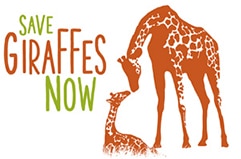
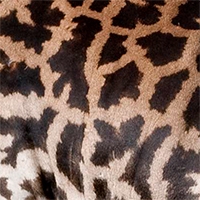 Masai Giraffe
Masai Giraffe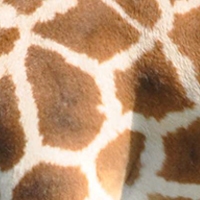 Northern Giraffe
Northern Giraffe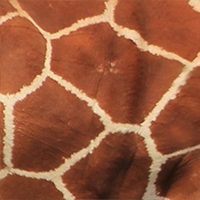 Reticulated Giraffe
Reticulated Giraffe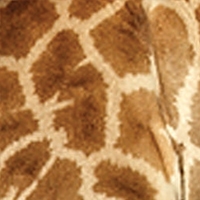 Southern Giraffe
Southern Giraffe